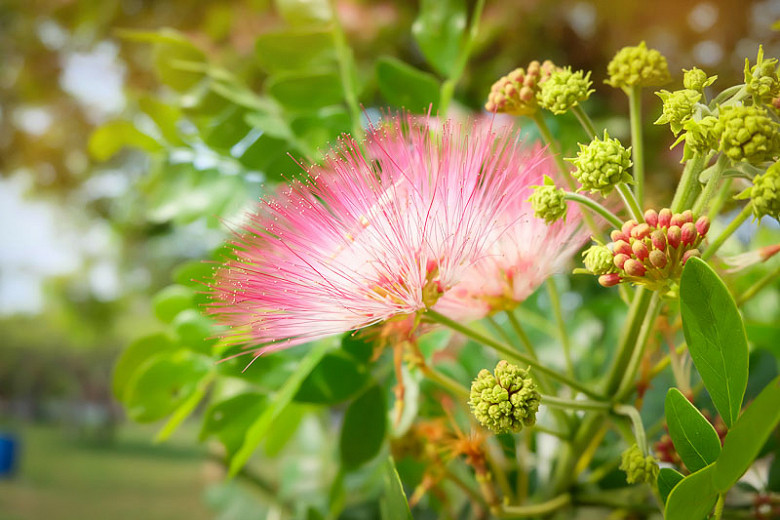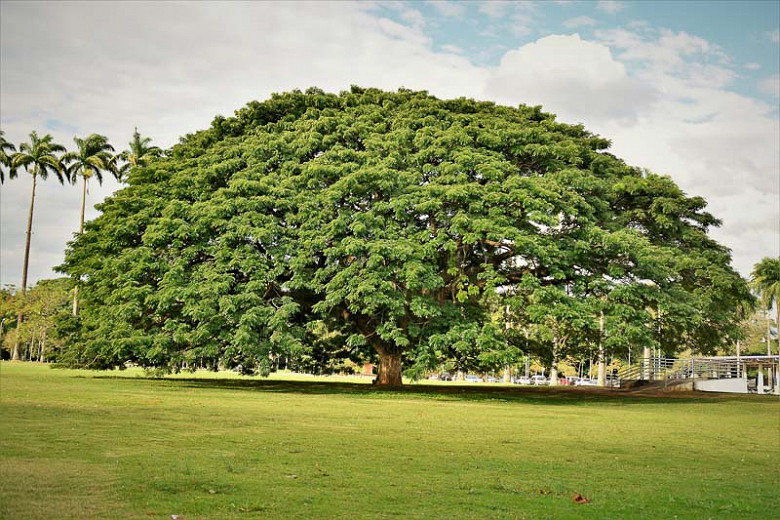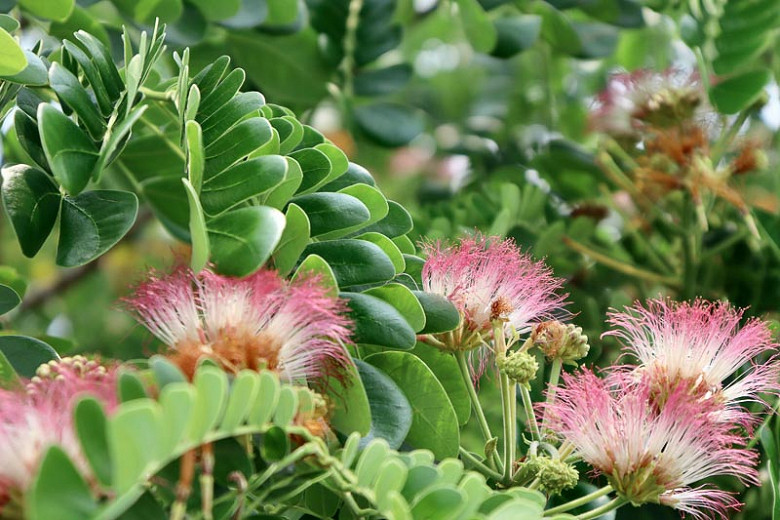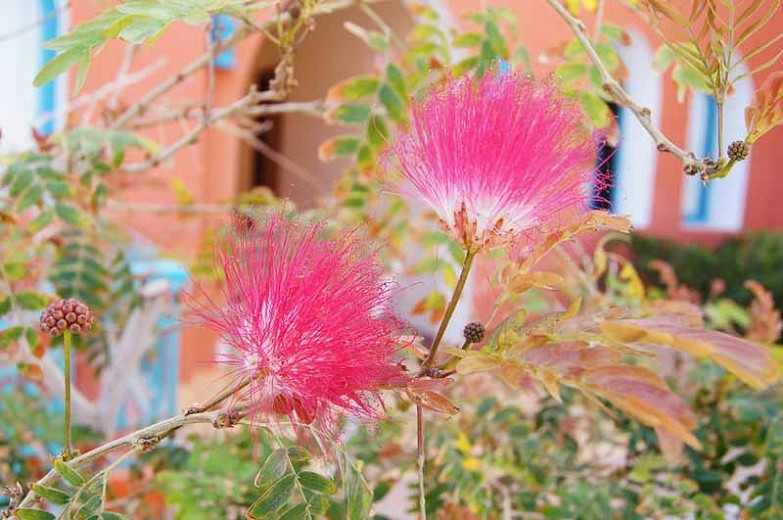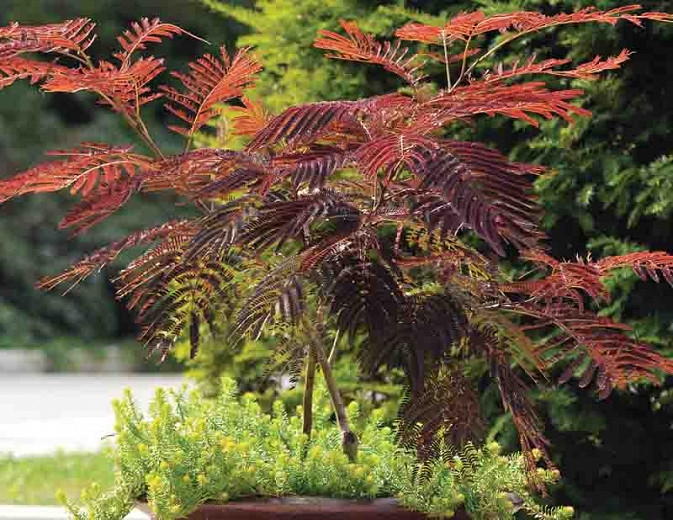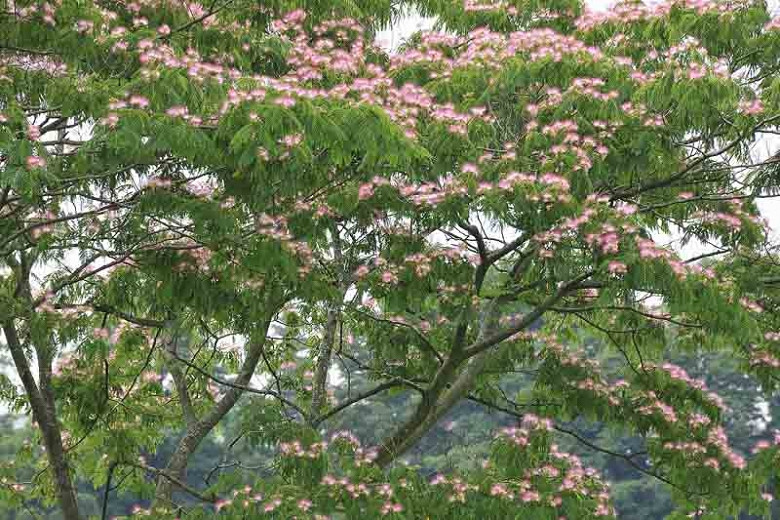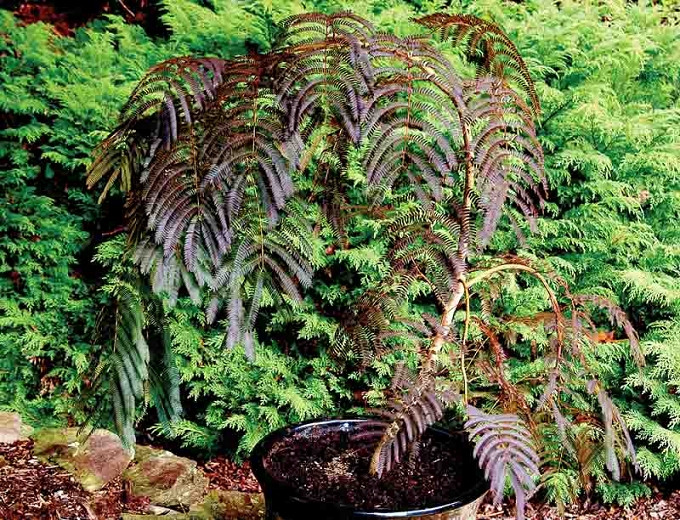Albizia saman (Rain Tree)
Stately, Albizia saman (Rain Tree) is a large tropical shade tree with heavy, nearly horizontal branches and a symmetrically umbrella-shaped, wide-spreading crown. The fern-like, bipinnate foliage of dark olive-green leaves, 12 in. long (30 cm), folds up on cloudy or rainy days and at night. The leaves are evergreen or partially deciduous under local conditions. Fluffy, slightly fragrant, pink, powder puff flowerheads, with prominent stamens, open in spring and cover the tree. The blossoms are attractive to bees. They are followed by green flat bean-like seed pods, 8 in. long (20 cm), turning dark brown when mature. The pods are filled with sweet, nutritious pulp, which is edible for humans. The gray-brown bark is rough and furrowed into ridges. Native to dry forests and savannahs of tropical Americas, Rain Tree has been widely introduced as a landscape tree in tropical Southeastern Asia and Hawaii. A beautiful choice for a shade tree.
- Grows up to 50-80 ft. tall (15-24 m) and 50-100 ft. wide (15-30 m).
- Performs best in full sun in average, medium moisture, well-drained soils. Tolerates light shade, but the best flower production is obtained in full sun. Tolerates a wide range of soil conditions. Drought tolerant once established this tree thrives in the high summer heat.
- Keep an eye out for wilt, mimosa web worm. Self-seeding can produce numerous seedlings.
- Propagate by seed.
- Native to northern South America and Central America.
- Albizia saman possesses some characteristics of other species known to have become invasive, such as prolific seeding, nitrogen fixation, and adaptation to a variety of soil types. It has been classified by Binggeli (1999) as moderately invasive.
Requirements
| Hardiness | 10 – 11 |
|---|---|
| Plant Type | Trees |
| Plant Family | Albizia – Mimosas |
| Exposure | Full Sun |
| Season of Interest | Spring (Early,Mid,Late)Summer (Early,Mid,Late)FallWinter |
| Height | 50' – 80' (15m – 24m) |
| Spread | 50' – 100' (15m – 30m) |
| Water Needs | Average |
| Maintenance | Average |
| Soil Type | Chalk, Loam, Sand |
| Soil pH | Acid, Alkaline, Neutral |
| Soil Drainage | Well-Drained |
| Characteristics | Showy |
| Tolerance | Drought |
| Attracts | Bees |
